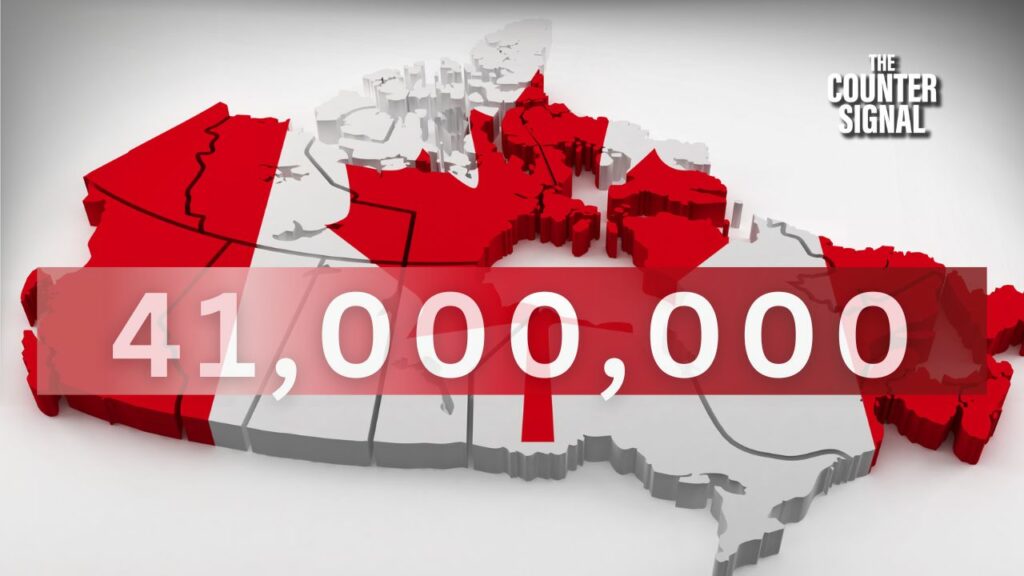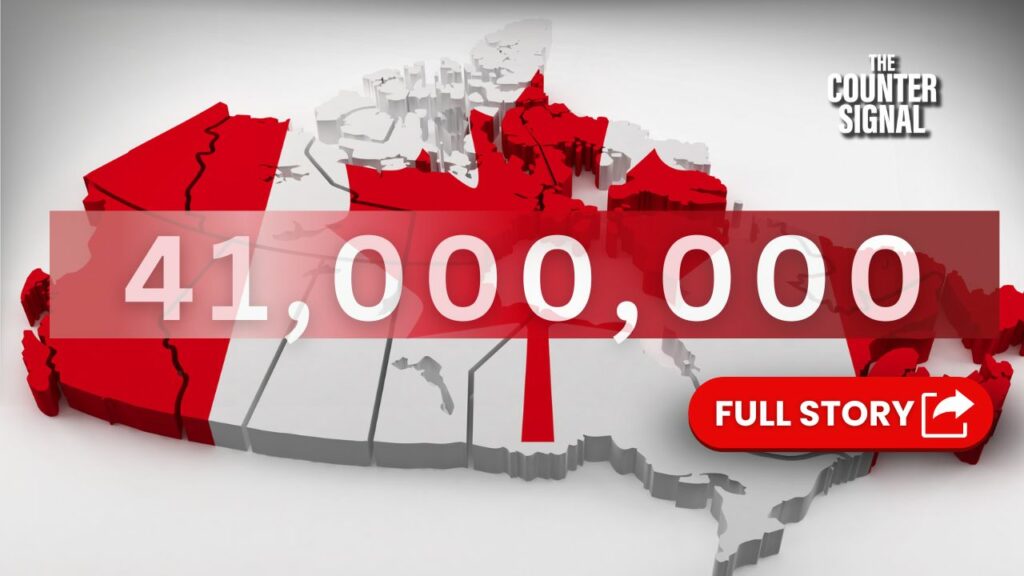The population of Canada will reach 41 million for the first time next week despite having only just surpassed 40 million last year.

At the time of writing, according to Statistics Canada’s active population tracker, the population of Canada sits at just over 40,983,000.
This puts Canada’s year-over-year population growth at almost exactly 1 million, as Statistics Canada estimated the population to be 39,858,480 on April 1, 2023—a roughly 2.8% increase in just one year.
For that particular quarter, Canada’s rise in population was almost exclusively attributed to immigration (~98%). And this trend has continued.
As previously reported by The Counter Signal, by October of last year, Canada’s population had risen by approximately 1.25 million from the previous October, driven largely by immigration, with Canada accepting a total of 454,590 new permanent residents and 804,690 non-permanent residents.
Most of this immigration occurred in the quarter between July and October 2023. During this period, Canada saw an increase of 430,635 (1.1%)—the single largest quarterly increase in the country’s history—which almost fulfilled the yearly immigration target in just 3 months.
This also makes Canada one of the fastest-growing countries in the world, on par with several African nations like Somalia, Angola, Mali, and the Congo.
Canada’s new permanent residents
As for new permanent residents, India dominates as the number 1 source country by a large margin, followed by China and the Philippines, with economic immigration being the number 1 immigration category for new residents in 2023. Refugees only make up a fraction of new permanent residents.
Additionally, there was a significant rise in permanent resident admissions from African countries in 2023. As per an Institute for Canadian Citizenship report, “The source countries that saw an increase in the number of PRs admitted were Cameroon, with an 87% increase from 2022, Congo, DRC, 63% increase, and Eritrea, 40% increase.”
While it took Canada 31 years (1966 to 1997) to go from 20 million to 30 million and another 26 years (1997 to 2023) to go from 30 million to 40 million, given the rapid, unimpeded, and exponential growth of Canada’s population through immigration, it’s very possible that Canada could reach the next milestone by the turn of the decade.









